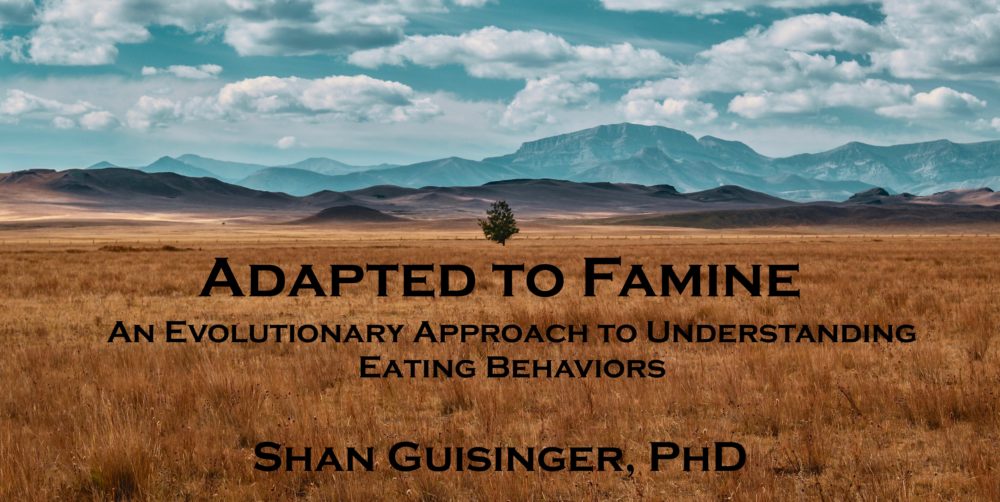
Into Thin Air
by Ellen Ruppel Shell
SEED Magazine | November 2003
Excerpt:
For nearly a century, researchers have worked to unravel the riddles of anorexia, looking to psychology to provide the answers. Now an explosive new theory contends that the disease is a remnant of our food-deprived prehistory. If anorexia is, at least in some of us, innate, then the after-school specials have got it all wrong – and a paradigmatic shift may soon be underway.
Shan Guisinger’s paper, “Adapted to Flee Hypothesis,” makes the audacious claim that anorexia’s distinctive symptoms – food restriction, hyperactivity, and denial of starvation – are not mere psychopathologies but evolved adaptive mechanisms. That is, that anorexia is in a sense vestigial, a remnant of our food-deprived prehistory. Guisinger speculates that our ancient ancestors, nomadic foragers, stopped eating in order to migrate more efficiently in times of famine. Equipped with hunger-regulation circuits that urged them to drop everything and move on because other territories might have more food, their bodies effectively “turned down” hunger and “turned up” energy and optimism, to encourage them to travel great distances in pursuit of meat and forage. “Today, genetically susceptible people who lose a good deal of weight may trigger this archaic adaptation,” Guisinger says. “And that’s what underlies their illness.”
This theory is not only radical, it is explosive. For starters, it goes against everything we think we know about natural selection: How can a condition that kills you or, at best, makes you infertile, be adaptive? Why would an animal ever be equipped by evolution with a circuit that caused it to avoid eating food – especially when starving? But the Adapted to Flee hypothesis does not argue that anorexia helps an individual survive and reproduce in the modern world. Rather, it contends that anorexics experience a perversion of the innate mechanisms that kept their ancient ancestors alive.
Surely, the characteristics associated with anorexia – perfectionism, obsessiveness, and compulsivity – would have come in handy in prehistoric times. The ability to perform at high levels on low rations would almost certainly have conferred an evolutionary advantage on some hunter-gatherers, endowing them with the will to keep hunting and gathering when others had given up hope. “When resources were depleted and the tribe despaired, an anorexic’s energy, optimism, and grandiosity could mobilize the other members to heroic marches, much as Joan of Arc, an apparently anorexic peasant girl, inspired soldiers to march with her,” Guisinger writes in a draft of the Psychological Review paper. “When a starving tribe reached a new hunting-gathering ground, social pressure exerted by family and friends would in turn have helped anorexic member(s) to begin eating again.”
“In trying to explain anorexia, we have put a psychological overlay on what is essentially a physiological phenomenon,” Guisinger says. “Psychological factors are important, but we’re so in our heads that we sometimes forget that we have bodies.” The baffling behavior of people with anorexia, Guisinger says, becomes understandable when considered in the context of a complex set of adaptations selected in the prehistoric past – and played out every day in the barnyard. It’s all there, she says, if only we’d have a look.

